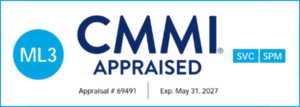In the quest for efficiency, understanding the true value of our actions in dollar terms, as advocated by The Dollarization Discipline, has revolutionized the way businesses operate. At ICS, we’ve embraced this concept, refining it to better suit our delegation and productivity strategies.
ICS’s Custom Approach
We begin by assigning a monetary value to each team member’s time, considering not just their salary and benefits, but also the tangible value they add to the company through sales, profits, or strategic contributions. This calculation acts as a guide for determining which tasks warrant personal attention and which should be delegated. For example, if a team member’s time equates to $400 per hour, they prioritize tasks that bring at least this much value to the company. This method isn’t about micromanaging every moment but ensuring that our efforts are focused where they’re most financially beneficial.
Beyond Just Dollars
However, our strategy doesn’t rely on numbers alone. We also weigh the unique skills, knowledge, and abilities each individual brings to the table. This approach means that decisions about delegation consider not only the financial aspect but also who is best suited for the task. It’s a balanced method that respects the complexity of our work and the diverse talents of our team.
The Benefits: Focused Work and Strategic Growth
Dollarization has cultivated a culture of thoughtful delegation at ICS. It encourages us to constantly evaluate our tasks, focusing on those that are most productive and aligned with our goals. This strategic focus not only enhances individual productivity but also promotes overall organizational growth by ensuring that everyone is working on tasks that maximize their value to the company.
Tailoring Dollarization for Real-World Application
What sets ICS apart is how we’ve tailored the dollarization concept to fit our unique corporate landscape. By integrating consideration of our team’s diverse skill sets and the financial impact of their work, we’ve developed a dynamic framework for delegation. This framework supports our strategic objectives, boosts efficiency, and leverages our collective strengths.
Strategic Efficiency through Dollarization
Our journey with dollarization at ICS highlights the transformative power of applying financial principles to everyday decision-making. By quantifying the value of time and aligning our tasks with this value, we’ve created a more efficient, goal-oriented culture. This approach has not only optimized our productivity but also underscored the importance of strategic thinking in achieving business success.
Are you dollarizing your time to make better business decisions?







